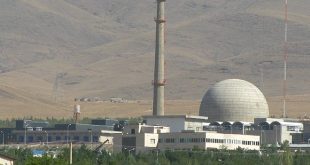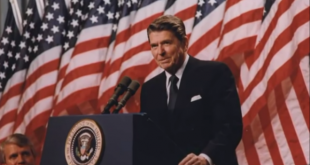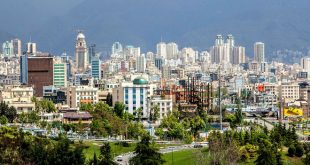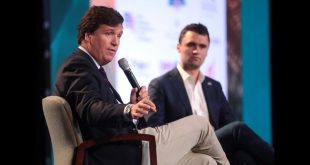Iran’s nationwide uprising is now in its third month, and despite a brutal crackdown that has killed 660 people, including 60 children, there is still no sign of it winding down. Earlier this month, authorities began issuing death sentences in connection with the protests, stoking well-founded concerns that the regime could resort to mass executions as part of its increasingly desperate effort to impede the popular movement for regime change.
According to the People’s Mojahedin Organization of Iran PMOI/MEK, which maintains vast intelligence and activist networks inside the Islamic Republic, roughly 30,000 people have been detained so far amidst the unrest.
After a three-decade campaign to hold the perpetrators of widespread human rights abuses in Iran, including the 1988 massacre of 30,000 political prisoners, accountable through the formation of a United Nations to establish a commission of inquiry, the UN finally initiated a meeting to that end.
After Germany and Iceland filed a request for a special session of the United Nations Human Rights Council, 40 other states approved it immediately, underscoring the breadth of international awareness of the “deteriorating human rights situation in the Islamic Republic of Iran.” If the international body proves willing to properly fulfill its responsibilities, a formal commission of inquiry will emerge out of the special session, setting the stage for even broader investigations that include the 1988 massacre and ultimately lead to the international prosecution of President Ebrahim Raisi, Supreme Leader Ali Khamenei, and others.
At this point, however, it is very much an open question whether the targets of such prosecution will still be in power when the international community gets around to formally pursuing their accountability. Growing numbers of foreign observers, including Western policymakers, recognize the potential for the present uprising to lead to the clerical regime’s overthrow.
The latest reports suggest that demonstrations have taken place in as many as 252 cities and towns, prompting authorities to issue severe threats against the residents of some areas and to actually open fire on certain communities, particularly those in Kurdistan, using heavy weaponry. Kurdish communities led some of the first demonstrations following the September death of one of their own, Mahsa Amini, at the hands of Tehran’s “morality police.”
Amini was accused of wearing her headscarf too loosely and was beaten severely en route to a reeducation center, where she fell into a coma that claimed her life three days later. Although this inciting incident led to an initial focus on the issue of forced veiling and the general denial of basic rights to women in Iran, the uprising quickly became an outlet for an unequivocal condemnation of the entire system behind those abuses. This is reflected in slogans like “death to the dictator,” and “death to oppressors, whether the shah or the mullahs,” which appear to be universal features of the uprising despite the regime’s efforts to obstruct the internet and otherwise impede their coordination.
The MEK and its parent coalition, the National Council of Resistance of Iran (NCRI), have argued that the protests are more united than ever, with people from various localities, ethnicities, and social backgrounds professing willingness to “give their life for Iran.” The prior deaths of fellow protesters appear to have only strengthened their resolve, as evidenced by upsurges in the protest movement coinciding with memorials to some of those victims, particularly the youths whose deaths solidified the regime’s public reputation as a “child killer.”
As backlash grows against the deaths of children as young as two, new sectors of society have continued joining the protests, including bazaar merchants, truck drivers, and high school students. Collectively, these groups threaten the regime’s already tenuous economic lifelines while also helping to guarantee sustained public attention to the movement, among both domestic and international audiences.
The overall expansion of activism goes hand-in-hand with the growth in membership and influence of the MEK’s network of “Resistance Units,” which has been playing key roles in promoting and coordinating the protests, in defiance of the regime’s obstructionism. Tehran has, in turn, ramped up its propaganda and threats against those activists and the Resistance as a whole, and the Islamic Revolutionary Guard Corps’ Intelligence Organization has been sending messages to mobile phones warning people against communicating with those who post anti-government graffiti, join the protests, or set fire to regime symbols and centers of repression.
Nevertheless, the protests continue to grow more radical, while clashes between protesters and security forces become more dramatic and violent. Dozens of IRGC officers, including several who held ranks as high as colonel, have been killed in those clashes. On Wednesday, Iran’s Foreign Minister Hossein Amir-Abdollahian highlighted those deaths to argue that the regime has been “showing restraint” throughout the uprising. This, of course, validates pre-existing concerns about further escalation, potentially leading to a crackdown equally or more serious than that which killed 1,500 protesters during an intense but brief uprising in November 2019.
In light of such threats from leading Iranian officials, it is imperative that the international community fast-track its inquiry into the ongoing crackdown and the regime’s underlying human rights violations. And in the meantime, the United States must explicitly recognize the right of all Iranians to defend themselves and to pursue the goal or regime change, for their good and also for the sake of global security and the enactment of basic democratic principles.
Photo credit: By PersianDutchNetwork – Own work, CC BY-SA 4.0, link
Ken Blackwell is the former United States Ambassador to the United Nations Commission on Human Rights. He is on the Board of Advisors of the Jewish Institute For National Security of America.
The views expressed in opinion articles are solely those of the author and are not necessarily either shared or endorsed by Black Community News.
Subscribe to our newsletter to read more about the fight for religious freedom!
 Black Community News News and Commentary for Christians
Black Community News News and Commentary for Christians



